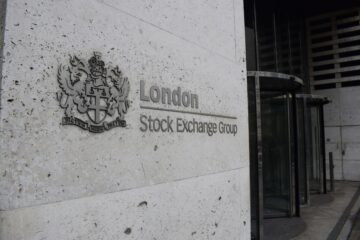Comcast market cap (as of 22/02/13) : $105.3bn
NBCUniversal Media market cap (as of 22/02/13) : N/A
On the 12th of February Comcast Corporation announced the acquisition of General Electric’s remaining 49% common equity stake in NBCUniversal for a valuation of approximately $16.7bn.
Comcast, a global media and technology company, operates in two primary businesses: Comcast Cable and NBCUniversal. The former is the US largest phone provider, video and high-speed Internet to residential customers under the XFINITY brand while, the latter, operates a wide portfolio of activities. Among them, it is worthy to underline 30 news and entertainment cable networks, the NBC and Telemundo broadcast networks, Universal Pictures and Universal Parks and Resorts.
The acquisition accelerates, on the one side, GE’s divestiture program, which should have begun in July 2014 and strengthens, on the other side, Comcast’s leading position in the media and technology sector. The transaction, expected to close by the end of the first quarter, will be funded with $11.4bn of cash, $4.0bn of subsidiary senior unsecured notes to be issued to GE, $2.0bn of borrowings under Comcast and/or subsidiary bank credit facilities and $725mm of subsidiary preferred stock to be issued to GE. The deal can be terminated under certain circumstances or by mutual agreement by either party on or before 27/03/13. As part of the transaction, Comcast will acquire the NBCU occupied floors in 30 Rockefeller Center and other property in Englewood Cliffs, New Jersey for $1.4bn in cash.
The deal, which brings NBCUniversal under total control of Comcast, has been concluded in two two separate transactions, with Comcast shelling out a grand total of about $18.5 billion in cash to General Electric. For its part, GE is poised to receive only about $12.7bn in immediate net cash, given a $5.8bn payment made to Vivendi in 2009 for the company’s French media conglomerate’s 20% stake in NBCUniversal. To get to NBCUniversal’s total valuation of about $39.1bn, Comcast didn’t just put up cash. It also threw in a mélange of assets and financial commitments that softened the price tag. In fact, in the NBCUniversal deal in 2009, Comcast’s total $13.75bn payment to General Electric consisted mostly of cable assets it contributed to the venture. In that part of the deal, Comcast forked over just $6.5bn in cash and another $7.25bn in assets — cable channels like E!, Versus and the Golf Channel, in addition to regional sports networks — for a controlling 51% stake in NBCUniversal.
Talking about the valuation issues the deal has been dubbed a “Steal”, by Jessica Reif Cohen, analyst at Bank of America- Merill Lynch, convinced by the fact that the ownership of 100% of a growing company would add value to Comcast. Her view is backed by the fact that NBCUniversal would grow Comcasts’ earnings per shares by just about 11% this year and at least as much in the coming year. As a matter of facts revenues grew by 3% to over $23bn, while operating cash flow grew over 9% to $4.1bn. Comcast’s share price were trapped in the 20-25$/share price from early 2011, until 2012, when the operational turnaround of the company delivered strategic value, by bringing the share price to the actual record of 41.40$/share.
Also Macquarie’s Analyst, Amy Yong, thought that the overall enterprise value should have been $45bn, given that the company is now a strategically complete asset, boasting both a very profitable cable business and a also content.
Looking at how the media market is developing, the old motto “Content is King” seems to be the main driver of M&A activity in the sector. In fact it is reasonable to assume that in 20 years time content won’t be broadcasted anymore through cable, so diversification into the direct ownership of content will drive profitability growth. This view is justified by the increasing costs associated with content, as shown for instance by the increasing amounts spent in bids by BSKYB to secure exclusive content rights in the British Premier League and in the movie arena. This means that big strategic winners will be in this game, content producers and owners, together with device producers, such as Apple and Microsoft, where the Apple TV and the X-Box will work as an aggregators of on demand content, where people can buy their preferred content and make their own TV schedule. In this context, the Comcast deal is a success, both in terms of strategic positioning and in terms of pricing.
Morgan Stanley was financial advisor to Comcast and Davis Polk & Wardwell LLP was the company’s legal advisor. J.P. Morgan provided financial advice to GE, and Weil, Gotshal & Manges was the Company’s legal advisor. In addition, Goldman Sachs, Centerview Partners, and CBRE provided strategic advice related to the transaction.



0 Comments